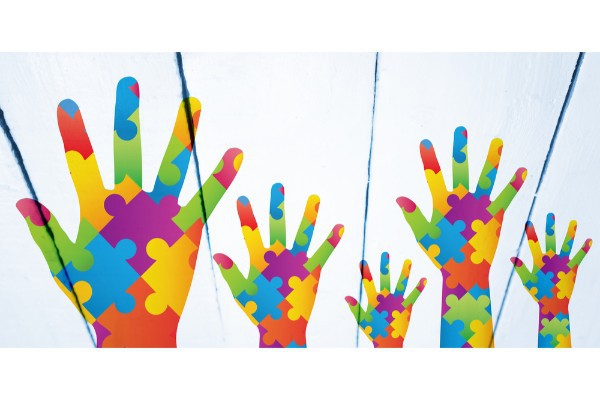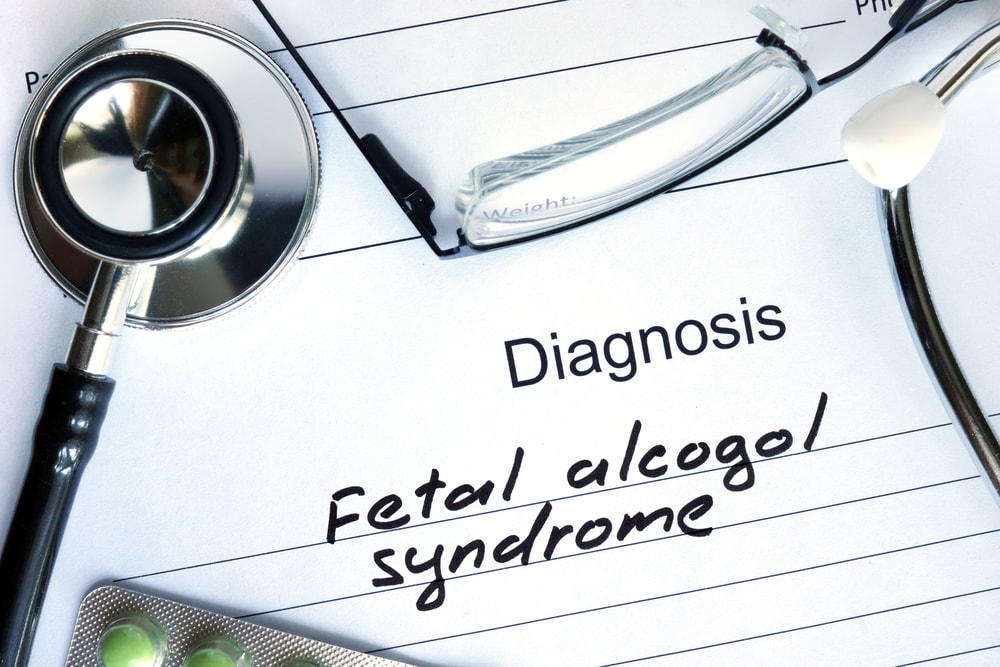|
New York’s former Governor Andrew Cuomo signed into a law a bill that would allow the state’s Office for People with Developmental Disabilities create a standardized identification card for individuals with autism spectrum disorder (ASD) and other developmental disabilities in 2018. The card represents an optional way for individuals with ASD convey information to others, including first responders, about their diagnosis. The information on the card would include information about ASD as well as an emergency contact number and address. The goal is to improve interactions with law enforcement.
New York Assemblyman Angelo Santabarbara, whose son has ASD, introduced the bill and pointed to an incident in Arizonaas highlighting the need for the ID cards. In 2017, Connor Leibel, a 14-year-old with ASD, was assaulted in the park by a police officer who believed that he was demonstrating evidence of drug use. Connor had been engaging in self-stimulating behavior or "stimming" which is a repetitive behavior that can bring a sense of calm to individuals with ASD. In this case, Connor was playing with a piece of string. When confronted by a police officer who had no training in autism, Connor explained what he was doing. The office slammed Connor into a tree and wrestled him to the ground. Connor sustained bruises, scratches, and a swollen ankle which required surgery. If Connor had been armed with an ID card informing the officer of his condition, then perhaps the incident could have been avoided. Not a Replacement for Training Autism ID cards are used across the country to help people with ASD in their interactions with law enforcement and other first responders. They're even sold online, and templates can be found on autism advocacy websites. They are useful tools. However, the onus should not be entirely on the person with ASD to explain their condition. Law enforcement should also receive specialized training on how to handle situations involving individuals with ASD and other developmental disabilities. They should be informed of the behaviors typically displayed by those with ASD and learn how to respond accordingly. Learning techniques such as de-escalation can help reduce violent conflicts and keep everyone safe. If you or a loved one with a mental disability has been arrested or convicted of a crime, you need an experienced criminal defense attorney on your side. Elizabeth Kelley specializes in representing individuals with mental illnesses and intellectual and developmental disabilities. To schedule a consultation call (509) 991-7058.
1 Comment
According to a recent study, it was found that individuals with autism spectrum disorder (ASD) are more likely to suffer from depression in adulthood than the general population. The study was a Swedish population-based study that looked at 223,842 participants who were followed from when they were children into young adulthood. The study compared young adults with ASD to those without the disorder. The study also looked at the siblings of those with ASD to rule out any familial effect.
Close to 20% of the participants with ASD received a depression diagnosis in young adulthood. It was discovered that those with ASD who did not have an intellectual disability were at a greater risk for depression. People without intellectual disability may be more prone to depression because they have a greater awareness of their difficulties and know more about their own limitations. Possible Reasons for Depression While it is not clear from the study whether the higher rates of depression are the result of environmental factors or something biological, there are significant reasons why someone with ASD may be more prone to depression. Individuals with ASD have trouble with communication and social interaction and may find themselves disconnected from the people around them. In addition, some of the behaviors associated with ASD may cause individuals to be the source of ridicule or isolation. Challenging to Diagnose The rates of depression among these individuals may be even higher than reported due to the difficulty of diagnosing mood disorders in those with ASD. Individuals with ASD tend to have a flat affect, and their facial expressions don't always match their mood. In addition, people with ASD can have difficulty discussing their feeling and the feelings of others. Another challenge is that some of the symptoms of depression overlap with symptoms of ASD. These symptoms can include depressed affect, sleep disturbances, social withdrawal, and reduced communication with others. Early Diagnosis The takeaway from this study is that families and physicians of individuals with ASD need to be more aware of the risk of depression. Children with ASD should be monitored for signs of depression so that they can receive early support and treatment. If you or a loved one with a mental disability has been arrested or convicted of a crime, you need an experienced criminal defense attorney on your side. Elizabeth Kelley specializes in representing individuals with mental illnesses and intellectual and developmental disabilities. To schedule a consultation call (509) 991-7058. Autism Spectrum Disorder (ASD) is a developmental condition that contains a broad range of disorders that affect communication and behavior. There is a wide variety of types and severity of symptoms that people experience. Individuals with ASD have persistent challenges in social interaction, problems with speech and nonverbal communication and sometimes repetitive or restricted behaviors. ASD can be diagnosed at any age, but symptoms generally begin appearing by the age of 2. Individuals with ASD can face significant challenges in the ability to function properly at work, school, and in other areas of life but many individuals with ASD live independent and successful lives. Signs and Symptoms Not all individuals with ASD show the same signs and symptoms. Some common social interaction and communication behaviors include:
Some common restrictive and repetitive behaviors include:
Statistics According to the Centers for Disease Control and Prevention (CDC), approximately 1 in 59 children has been identified with Autism Spectrum Disorder (ASD). ASD occurs in all racial, ethnic, and socioeconomic groups but is 4 times more likely to occur in boys than girls. In some studies, it was shown that if one identical twin has ASD, the other twin is 36-95% more likely also to have ASD. Parents who have a child with ASD are 2-18% more likely to have a second child with the disorder. Treatment Medication can be used to treat some of the behaviors that go along with ASD such as anxiety and depression, hyperactivity, attention issues, irritability, and aggression. People with ASD may also benefit from programs that help them learn social, communication, and language skills. Therapies that help build life skills and reduce challenging behaviors can also be helpful. If you or a loved one with a mental disability has been arrested or convicted of a crime, you need an experienced criminal defense attorney on your side. Elizabeth Kelley specializes in representing individuals with mental illnesses and intellectual and developmental disabilities. To schedule a consultation call (509) 991-7058.
While it is unknown exactly how many people have a Fetal Alcohol Spectrum Disorder (FASD), it is estimated that 2-5% of children in the United States have an FASD. FASD results from the use of alcohol by a mother during pregnancy and according to the Centers for Disease Control, 10% of pregnant women report drinking, while 3% report binge drinking during pregnancy. FASD is a hidden disability where symptoms are not always obvious to those on the outside, but sometimes these symptoms can be debilitating and can lead to unfortunate interactions with the criminal justice system.
What is Fetal Alcohol Spectrum Disorder? Fetal Alcohol Spectrum Disorder refers to a group of conditions that may occur if a person’s mother consumed alcohol during pregnancy. Alcohol in the mother’s blood stream passes to her baby through the umbilical cord. Therefore, when a pregnant woman drinks alcohol, so does the baby. No amount of alcohol is safe during pregnancy and FASD can occur even if a pregnant woman never binge drinks. Alcohol consumed by the mother can cause significant damage to the brain. Symptoms of Fetal Alcohol Spectrum Disorder FASDs, including Fetal Alcohol Syndrome, can lead to a variety of physical, cognitive, and intellectual disabilities. Behavioral and social issues may include:
Fetal Alcohol Spectrum Disorder and Criminal Justice Individuals with FASD sometimes become involved with the criminal justice system. The brain damage that results in FASD can make it difficult for individuals to avoid problems with the law. Lack of impulse control and problems thinking of future consequences can lead to involvement in criminal activity. In addition, tendency toward explosive episodes and vulnerability to peer pressure can also lead to a high risk of trouble with the law. In 2012, the American Bar Association passed a resolution urging attorneys and judges to receive training on how to recognize and handle FASD in the criminal justice system. It is important that brain disorders are treated properly when it comes to crime. As Stephen G. Cobb noted in Representing People with Mental Disabilities(edited by Elizabeth Kelley and published by the American Bar Association): "If crime itself is the result of brain disorders, then crimes are actually the reasonably foreseeable symptoms of abnormal brain function. Because criminal law is predicated on all persons being presumed “sane,” this calls into question whether our entire criminal justice system is built on a false paradigm that is no longer sustainable. At the present time, federal and state governments around America are punishing people for medical disorders. Now that this has come to light, it is past time to have a national conversation about what this means for criminal justice and what kind of a society we are. Until we recognize the powerful link between crime and brain disorders, and create appropriate preventative and treatment measures, what will a sizable portion of the population do as a result of undiagnosed and untreated brain disorders? " If you or a loved one with a mental disability has been arrested or convicted of a crime, you need an experienced criminal defense attorney on your side. Elizabeth Kelley specializes in representing individuals with mental illnesses and intellectual and developmental disabilities. To schedule a consultation call (509) 991-7058. |
Details
Archives
March 2024
Categories |




 RSS Feed
RSS Feed